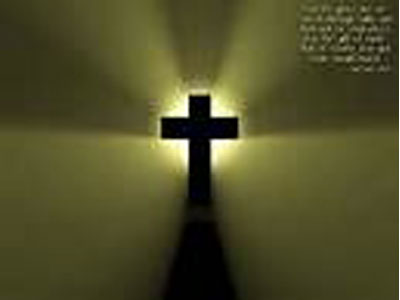
It is true that a greater percentage of Christians observe Easter, but not all observe the accompanying rituals such as Ash Wednesday, which flags off the 40-day fasting before Easter celebration. While the Catholic adhere strictly to the tradition of Ash Wednesday marking the commencement of the fasting calendar, the Pentecostal do not. Indeed, some churches have just rounded off their own fasting period, which commenced on January 2. While all Christians celebrate Easter, why is it that not all adhere to the orthodox prescriptions? Why the different approaches to marking Easter? Some clerics told CHRIS IREKAMBA that church doctrine is to be held responsible.
‘Those Dogmas Of A Church Are Not Christ’s Doctrines’
(Archbishop Joseph Ojo, Presiding Bishop, Calvary Kingdom Church, CKC, Lagos-Badagry Expressway)
I THINK the truth of the matter is that every church denomination has its own dogma or belief. Those dogmas are not actually the doctrines of Christ. We don’t judge or condemn any person based on his or her religious or denominational beliefs.
For example, the Bible says we should pray without ceasing. So, our prayer and commitment is not seasonal. We are supposed to pray continuously. Some of us have observed 40 days, 21 days and 14 days fasting at the beginning of the year. But it has been one of the foundations of the doctrines and tenets of some denominations such as the Roman Catholic, Anglican and Aladuras among others. So, they can’t change it over night. But in the Pentecostals, we don’t observe it because it has not been our doctrine or dogma or belief though we don’t condemn them.
At times, we undertake a month fasting, as we are led by the Spirit to seek the face of God. So, the issue of Lent is a time of sober reflection and penitence. But we pray without ceasing and that is what the Bible says. We pray always for the church, the nation and ourselves. The approach of marking Easter or the death of Jesus Christ and His resurrection is uniform. We don’t argue about Good Friday and Easter Sunday, but the observance of the feast relating to it differs. 1Thessalians 5:17 says, Pray without ceasing. In every thing give thanks: for this is the will of God in Christ Jesus concerning you.”
Theologians have had their different schools of thought and our school of thought is that we don’t have to wait till it is Ash Wednesday and all that before we mark Easter. We have to be sober and vigilant at all times, as that’s what the Bible says.
‘My Faith Has Gone
Beyond Putting Ash On My Forehead’
(Pastor Faith Charis Ajala, Head Pastor, Special Treasure Covenant Church, Lagos)
I DON’T believe in Lent and we don’t observe it in the Charismatic. Our faith has gone beyond that, as we believe in the grace that Jesus Christ has made available to us. We believe in His death on the Cross of Calvary, as well as His resurrection. However, those that do so have their reasons.
My faith has gone beyond putting ash on my forehead. I’ve grasped the reality of what Jesus Christ died for. I don’t need to carry any ash on my head. These things are not physical but spiritual. So, I don’t need to operate at that level because Christ has paid the price. What Jesus took away doesn’t need to come back to me. He died for me so that I can be redeemed. He died for me so that I can be delivered. He died to save me; so, my salvation is what I need to guard jealously and not going about with ash on my head and observing the rituals of 40-day fasting. We fast as directed by the Holy Spirit because if Christ has paid the price, let the Holy Spirit guide us on what to do.
There is no difference in marking Easter. We are celebrating the death of Jesus Christ on the Cross of Calvary and what it stands for. Any one that believes in His birth, His death and resurrection is considered a Christian. I believe that He died for our sins and that of mankind. And on the third day after His death, He rose again. That is what makes Him Jesus Christ, as was prophesied by Isaiah that he was going to die, which He did and then rose. I don’t need to observe some of these rituals every year, though I’m not condemning those that do so. That is their faith and belief.
Since I joined the Pentecostal and became a Charismatic, I don’t believe in such things. If the Holy Spirit says ‘go on fasting and separate yourself for the next seven days,’ I proceed to do so without discussing it with anybody. It’s something that should be between the individual and his/her Creator.
‘Lent Is Merely A Creation
Religious Men’
(Rev. Francis Ejiroghene Waive, General Overseer, Fresh Anointing Missionary Ministries Inc./Senior Pastor, Church Of The Anointing, Warri, Delta State)
LENT and all the traditions that go with it are not mentioned in the Holy Scriptures. And for any church that revers the Bible as the only authoritative, infallible and unerring word of God, any extra Biblical teachings and practices are discarded no matter how long they have been celebrated or how pious they appear. Lent does not have a scriptural prescription. If you research the history of this celebration, you will know that it is merely the creation of religious men, who have no relationship with the Saviour.
Easter, on the other hand, is mentioned at least once in the Scripture and the resurrection of our Lord was celebrated weekly by the early church, culminating in our worship on Sunday instead of Saturday. Hence, the church continues to celebrate Easter. The Bible, however, does not state specific things to do or observe as a way of celebrating Easter.
The example we find in the scripture is that Christ is worshipped on that day. His victory over sin and death causes great rejoicing because this is our hope for eternal life.
Religion is involved in rituals, whereas Jesus is interested in the relationship with the individual. And it is because most of our people are religious, but have no relationship with God that we find the paradox of a very religious people yet extremely corrupt in Nigeria. It is an affront to the Holy Scriptures to say that Easter is a period for Christians to draw nearer to God. The word of God teaches that our daily life ought to be clean and devout, festival or no festival.
Approaches to marking Easter and any religious festival will continue to differ as we approach the end time. In medieval times, rituals and outward display of piety was it. In today’s world, commercialisation is it. Many forget that Jesus is the reason for the season. It will take adherence to Biblicality to change this, but the scriptures are clear that this will not be achieved in these last days. We are admonished to continue to teach and practise the truth and through this some will come to the saving knowledge of Jesus Christ.
‘We Don’t Observe Ash Wednesday Or Lent’
(Rev. (Dr.) Kayode Opadeji, Senior Pastor, First Baptist Church, Ikeja, Lagos)
EACH church has its own dogma, which we call doctrine, which means those things that actually formed their belief in God. I am a Baptist and we do not really observe these church calendar activities such as Ash Wednesday and Lent among others. But that does not mean we are actually against those that practise them. Our own view is that Jesus Christ has done everything for us and so, we do not need to legalise fasting in such a way that people will be constrained to observe it. Such things should come from the individual’s volition as a Christian. So, we believe that the aspect of Ash Wednesday or Lenten period should be left to the individual to decide whether to observe them or not.
Then the aspect of Easter is something that forms the basis of our belief, because without the resurrection of Jesus Christ, what we preach about Christianity is in vain. That is our own position and stand.
We, therefore, feel it would be unfair for any denomination to now impose what it believes on other denominations. And that is why in Christianity, there is unity in diversities, it is also a personal thing. So, you don’t need to legalise fasting though it’s also not a sin to observe it. I think it might have been as a result of an encounter they had with God and if you have an encounter and the Lord says you should do something, of course, you should go ahead and do it.
‘Don’t Wait For A Particular Time Before You Fast And Pray’
(Rev. Ikechukwu Ugbaja, National Secretary, Foursquare Gospel Church Nigeria)
YOU called them Ash Wednesday and Lent rituals. Christianity is a lifestyle, which is very dynamic. The idea of fixing a period for fasting is supposedly for penance and may be sobriety. But what happens after that period? Does it mean that the person will now go back to his former lifestyle? Christianity is about having a living relationship with Christ, which is very dynamic and not about rituals. So, to a Christian that has a relationship with Christ, this idea of fasting, penance or sobriety is a permanent lifestyle, an every day affair. Like you rightly observed, some Christians commenced fasting by January. So, it’s something that goes round the year.
A true Christian that wants to maintain a good relationship with God, must reserve some days for fasting and prayer so that s/he can remain light in the body and be sensitive in the spirit, as well. So, it’s not something that is restricted to a period of time. I’m saying this to lay credence to the fact that dynamic Christian living is not one of ritual, but something that one has to do as long as you are still on this side of the divide. Those that understand what it means to be born again know that it is not a ritualistic practice, but rather a dynamic lifestyle that is predicated on a life that is spirit-inspired. So, you don’t wait for a particular time before you begin to observe those rituals. It is something you do everyday, and those that believe in this play down on the ritual aspect of these practices.
‘Ash Wednesday And Lent Are Not Programmes Of Pentecostal Churches’
(Pastor Mike Onyeka, Senior Pastor, Victorious People Assembly Int’l Aba, Abia State)
THE main subject matter, which is the death and resurrection of Jesus Christ, is without argument. But the programmes of how we celebrate it differ according to the denominations. So, essentially, the programme of Lent that begins with Ash Wednesday is traditionally that of the Catholic. It’s not every Christian denomination that follows that programming rigidly. It’s not necessarily an issue of doctrine because we all believe in the death and resurrection of Jesus Christ, just as we all believe in the necessity to meditate at this period because that is what the fasting of the Lenten period is all about.
Meditation on the death and resurrection of Jesus Christ is going with Jesus throughout the event of these 40 days. So, in principle, every Christian believes in the necessity for this meditation. But it is not a programme embraced by every church and it is not a question of disagreement. There is no disagreement on the principles of the season. There is no uniformity in the programming of the churches.
The difference then is as a result of denominational programme, not a disagreement on the principles of Easter. Almost every Pentecostal church has an Easter programme.
In my church, for example, we already have a programme for the Easter week, which we call the power of His resurrection and it lasts for some days. It takes the form of teaching, preaching and praying. Even now, we have started some teaching and drawing the attention of people to the importance of the death and resurrection of Jesus Christ. Each church has its own way of celebrating Easter. But the Catholic strictly observes the Ash Wednesday and Lenten period; it’s not part of the programmes of the Pentecostal churches.
It Is A Religious Exercise, But It Should Be Done Secretly’
(Rev. (Mrs.) Olayemi Aderibigbe, Minister-in-charge, Ijero Baptist Church, Ebute Metta, Lagos)
NOT all Christians observe Ash Wednesday or the 40-day fasting that culminates into Easter. Jesus said when you are fasting, it should not be made known to people and so, most Christians believe that fasting should not be limited to the Lenten period alone. Some of them observe fasting, but they don’t make noise about it or begin show to the world that they are fasting.
What a lot of people believe is that though it is a religious exercise, but it should not be done publicly and that is why some Christians choose to be reserved about it.
There is no difference in marking Easter; the only thing is this Ash Wednesday of a thing. Churches observe fasting differently and apart from some sects; some Christians believe generally that Easter is so important to us in the history of Christianity, because without the empty tomb, we don’t have anything to show that we are Christians. But the celebration is another ball game entirely. While some people would go about with their palm fronds on Palm Sunday, others believe that the period is a time of reflection; a time to really look inward and mediate on what the Lord has done for us. It depends on what you attach your belief to and since it’s working for some people, you don’t need to condemn it, though it requires explanation and understanding. The ultimate is that one understands what s/he is doing and if at the end of the day you make heaven, fine! Another question that this exposes us to is: if you fast for 40 days and after that you go back to drinking and sin, wouldn’t the whole exercise have been in futility?
For us in Baptist Church, we don’t observe Ash Wednesday, but then, where is it found in the Bible? We believe in the Bible and we strictly follow it and even in our way of dressing as pastors. The Baptist believes that fasting should be done, but should not be attached to any specific time.
We observed fasting during our Convention, just like the Redeemed Christian Church of God did, when in January they observed their 40-day fasting, which ended in February 2015. Our belief is that you can fast for 100 or even 200 days, but don’t make it public. Most churches at the beginning of the year observed 21, seven and 14 days of fasting to start the year. But at this period, some churches may decide to hold a programme and declare fasting. If your church decides that you are going to observe a 40-day fasting, nobody can query it.





